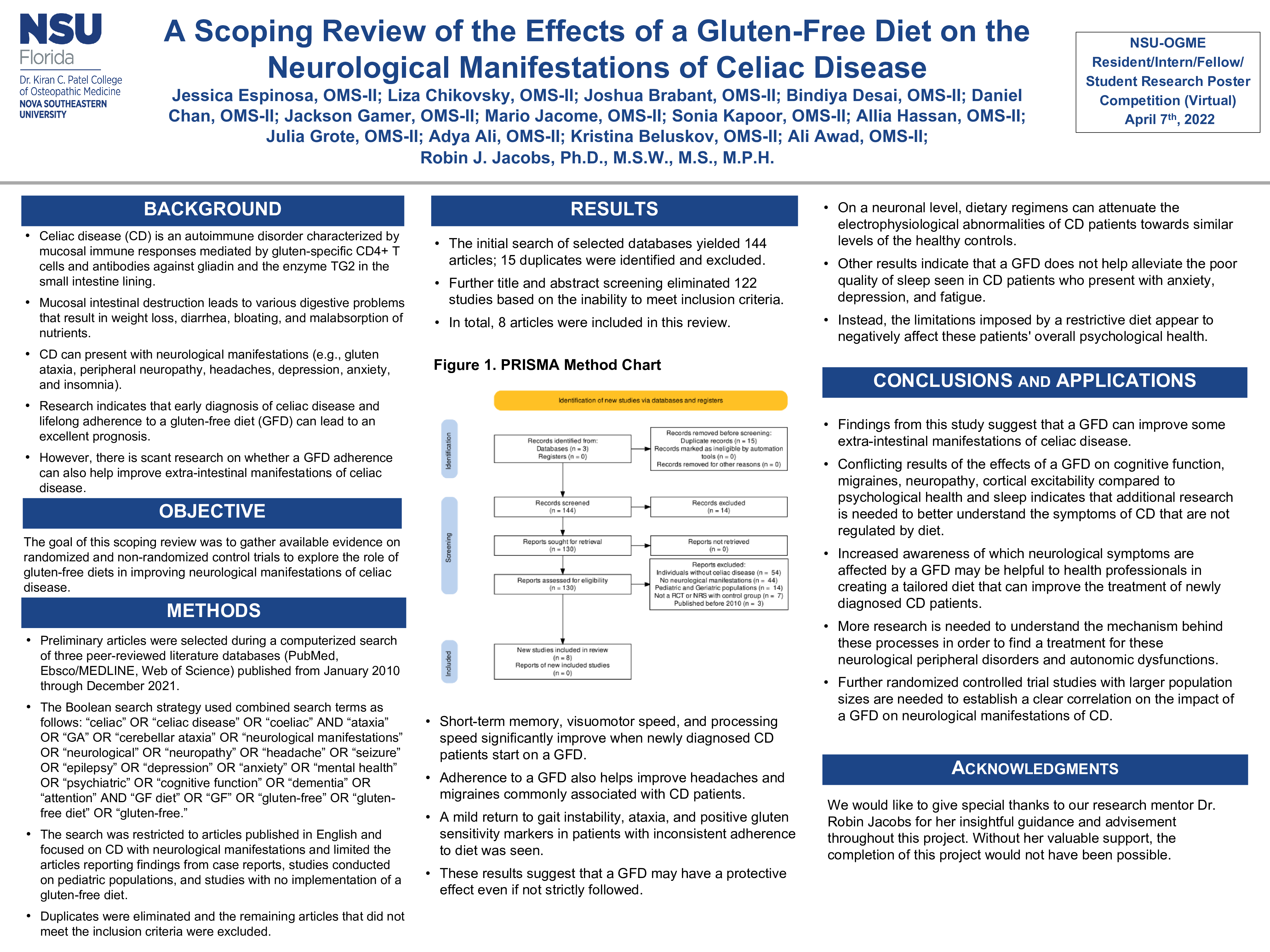A Scoping Review of the Effects of a Gluten-Free Diet on the Neurological Manifestations of Celiac Disease
Dr. Kiran C. Patel College of Osteopathic Medicine, Nova Southeastern University, Fort Lauderdale, USA
Jessica Espinosa, Liza ChikovskyDr. Kiran C. Patel College of Osteopathic Medicine, Nova Southeastern University, Fort Lauderdale, USA
Liza Chikovsky, Joshua BrabantDr. Kiran C. Patel College of Osteopathic Medicine, Nova Southeastern University, Fort Lauderdale, USA
Joshua Brabant, Bindiya Desai, Medical StudentDr. Kiran C. Patel College of Osteopathic Medicine, Nova Southeastern University, Fort Lauderdale, USA
Bindiya Desai, Daniel ChanDr. Kiran C. Patel College of Osteopathic Medicine, Nova Southeastern University, Fort Lauderdale, USA
Daniel Chan , Jackson GamerDr. Kiran C. Patel College of Osteopathic Medicine, Nova Southeastern University, Fort Lauderdale, USA
Jackson Gamer, Mario Jacome, Medical StudentDr. Kiran C. Patel College of Osteopathic Medicine, Nova Southeastern University, Fort Lauderdale, USA
Mario Jacome, Sonia Kapoor, Medical StudentDr. Kiran C. Patel College of Osteopathic Medicine, Nova Southeastern University, Fort Lauderdale, USA
Sonia Kapoor, Allia Hassan, Medical StudentDr. Kiran C. Patel College of Osteopathic Medicine, Nova Southeastern University, Fort Lauderdale, USA
Allia Hassan, Julia GroteDr. Kiran C. Patel College of Osteopathic Medicine, Nova Southeastern University, Fort Lauderdale, USA
Julia Grote, Adya Ali, Medical StudentDr. Kiran C. Patel College of Osteopathic Medicine, Nova Southeastern University, Fort Lauderdale, USA
Adya Ali, Kristina Beluskov, Medical StudentDr. Kiran C. Patel College of Osteopathic Medicine, Nova Southeastern University, Fort Lauderdale, USA
Kristina Beluskov, Ali AwadDr. Kiran C. Patel College of Osteopathic Medicine, Nova Southeastern University, Fort Lauderdale, USA
Ali Awad, Robin J. Jacobs, Professor, MPH, PhDMedical and Behavioral Research; Health Informatics; Medical Education, Nova Southeastern University, Fort Lauderdale, USA
Robin J. Jacobs





